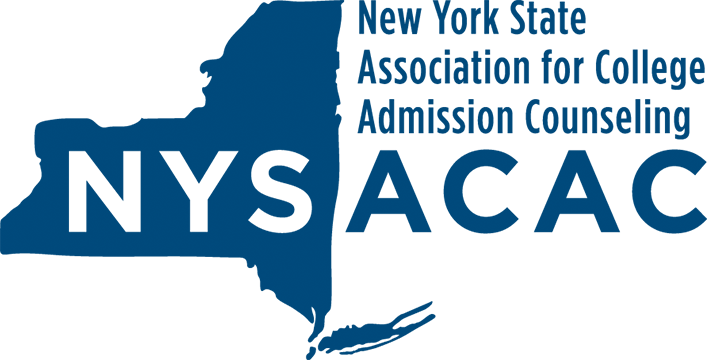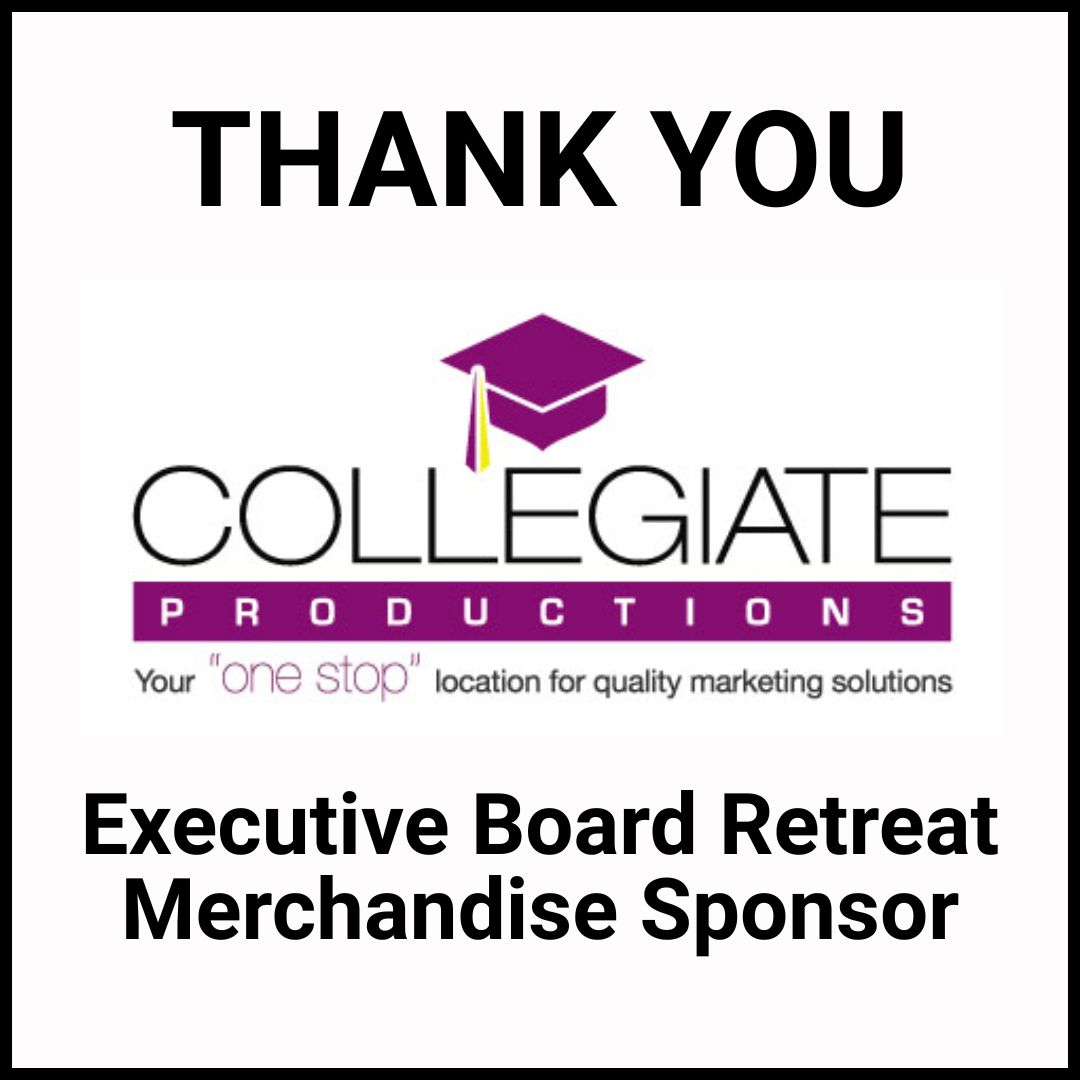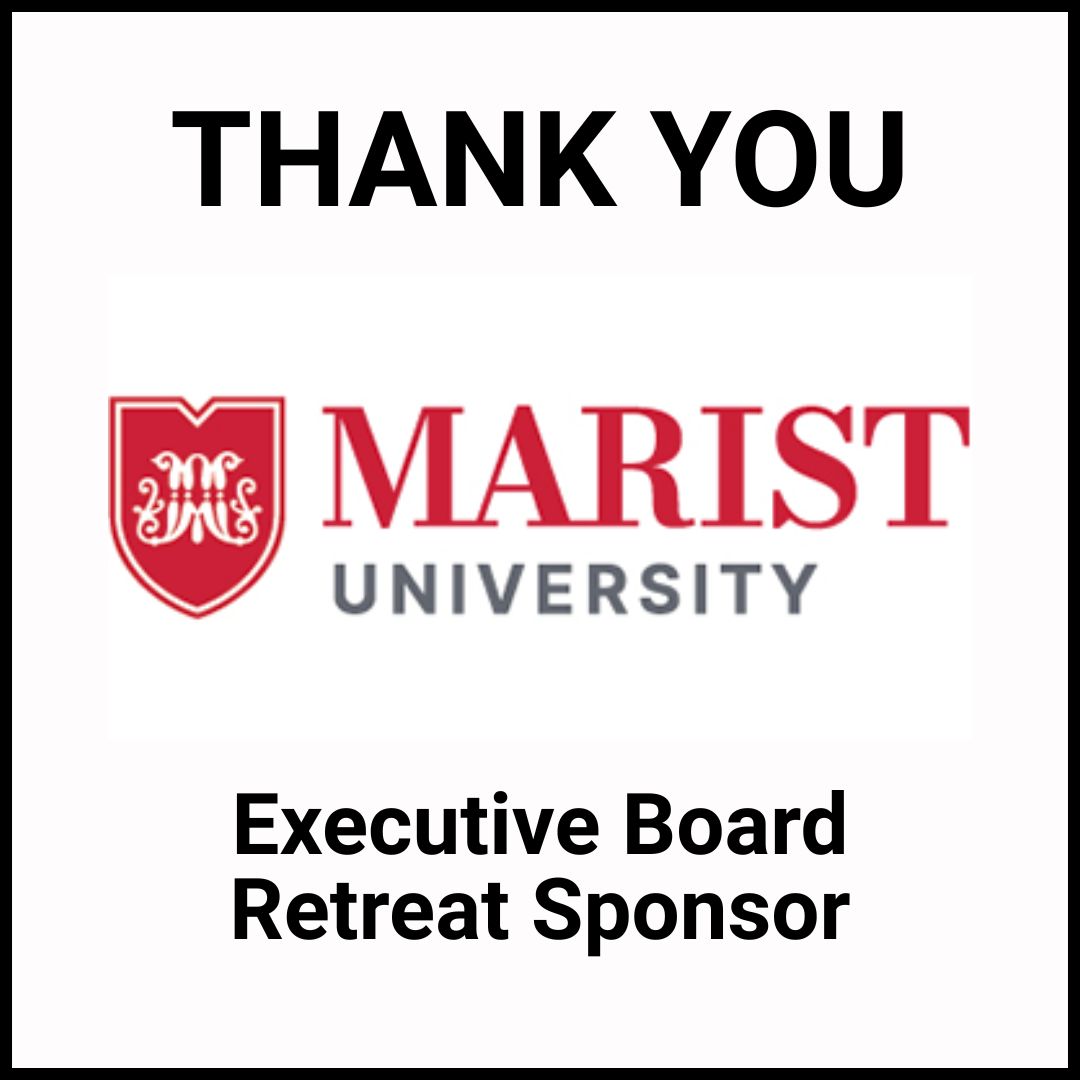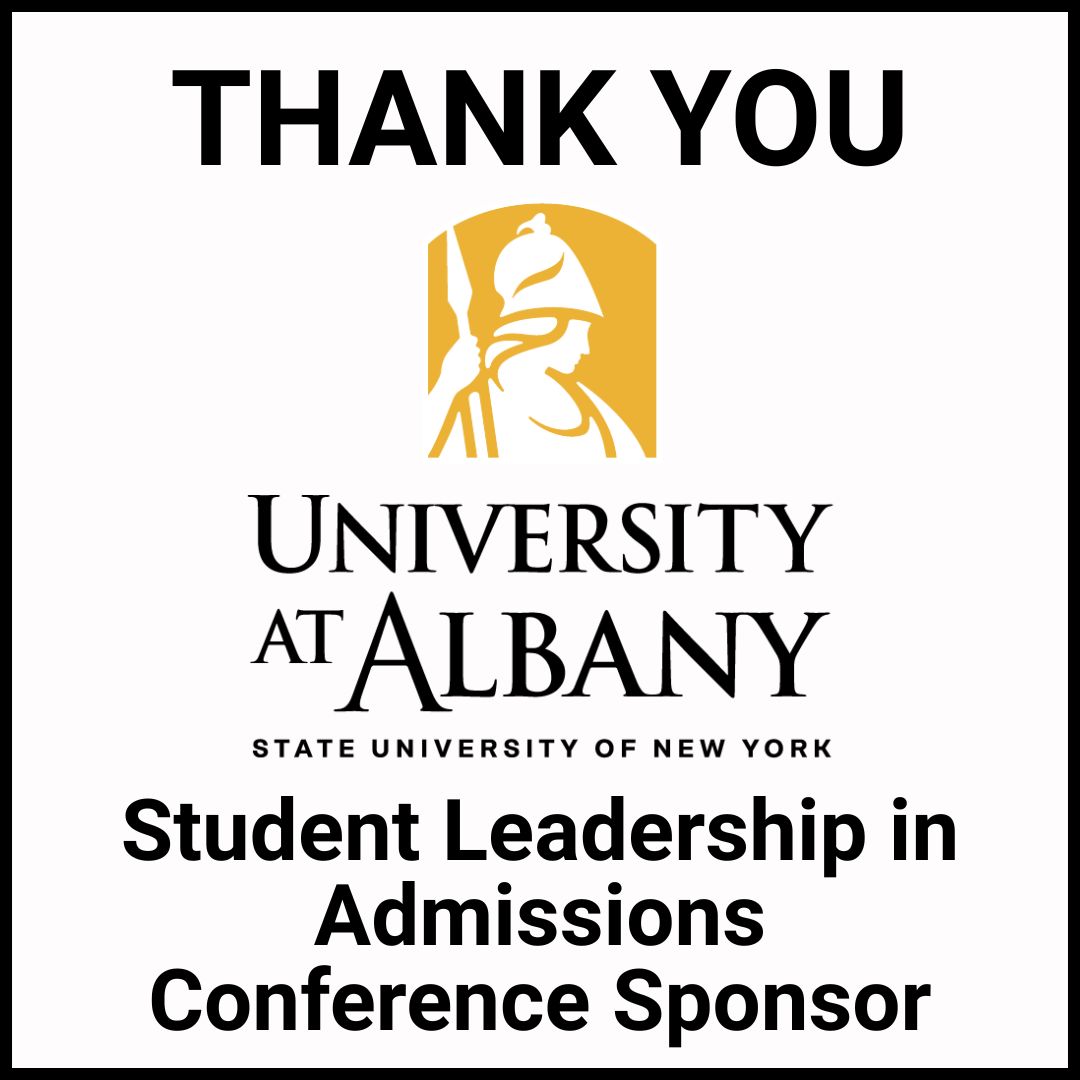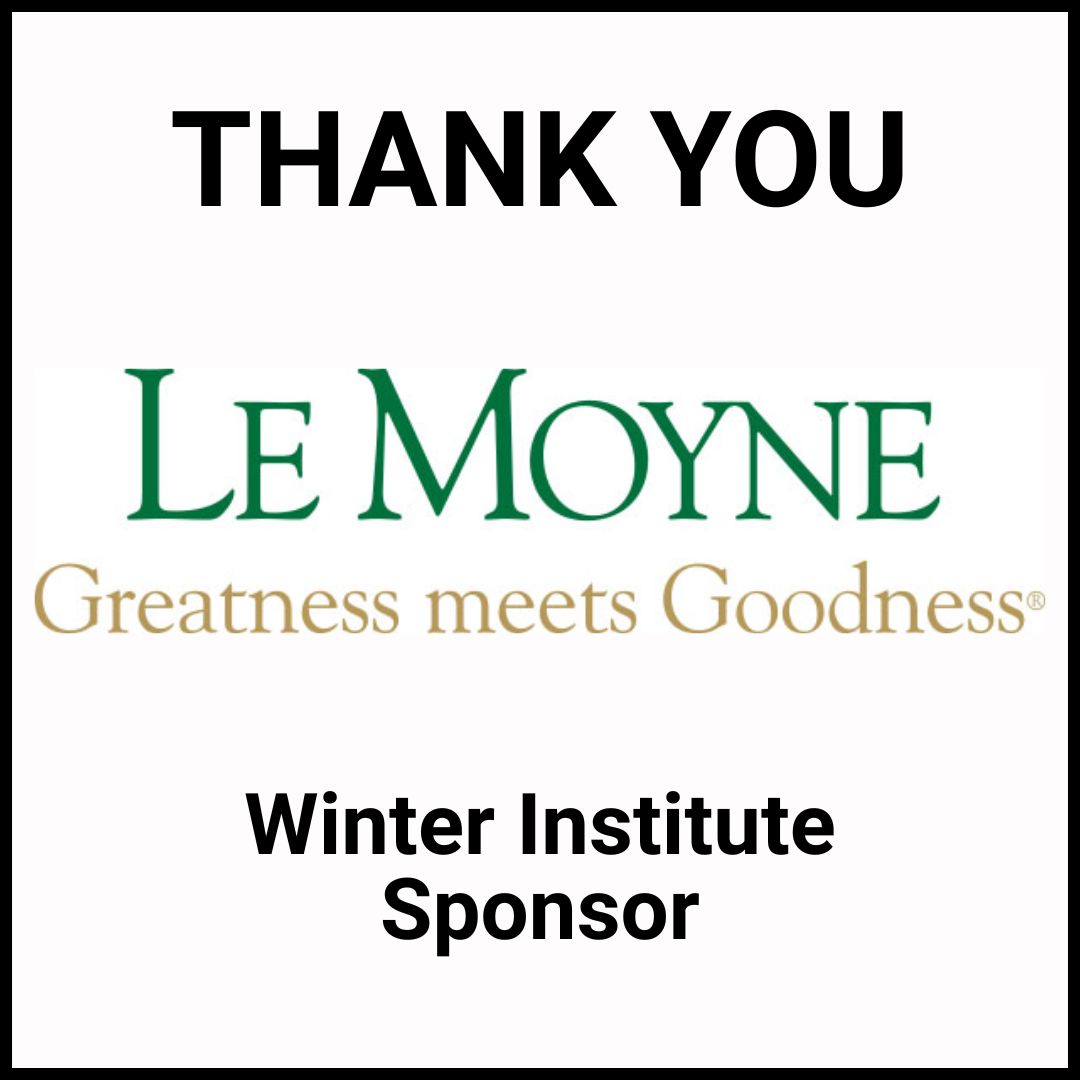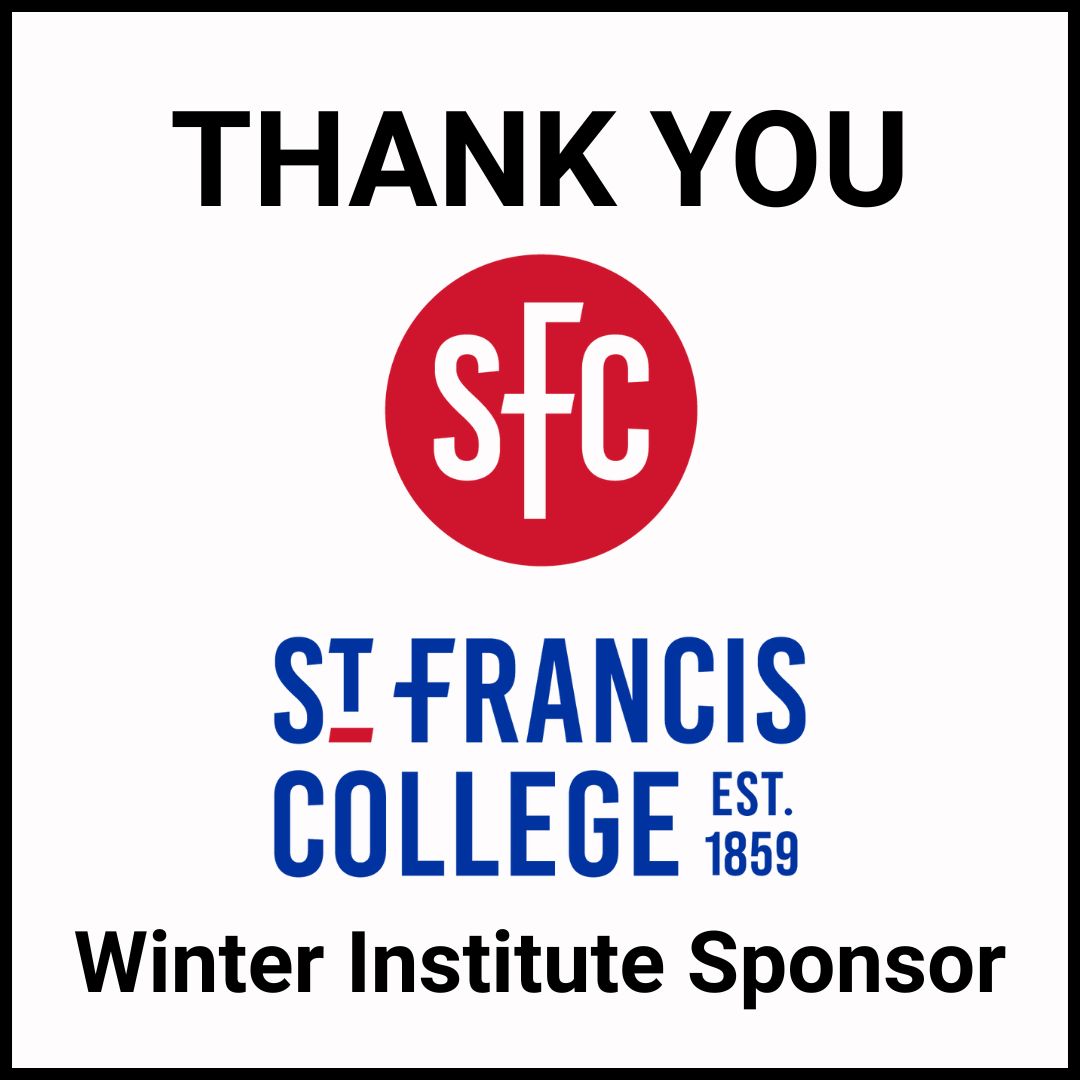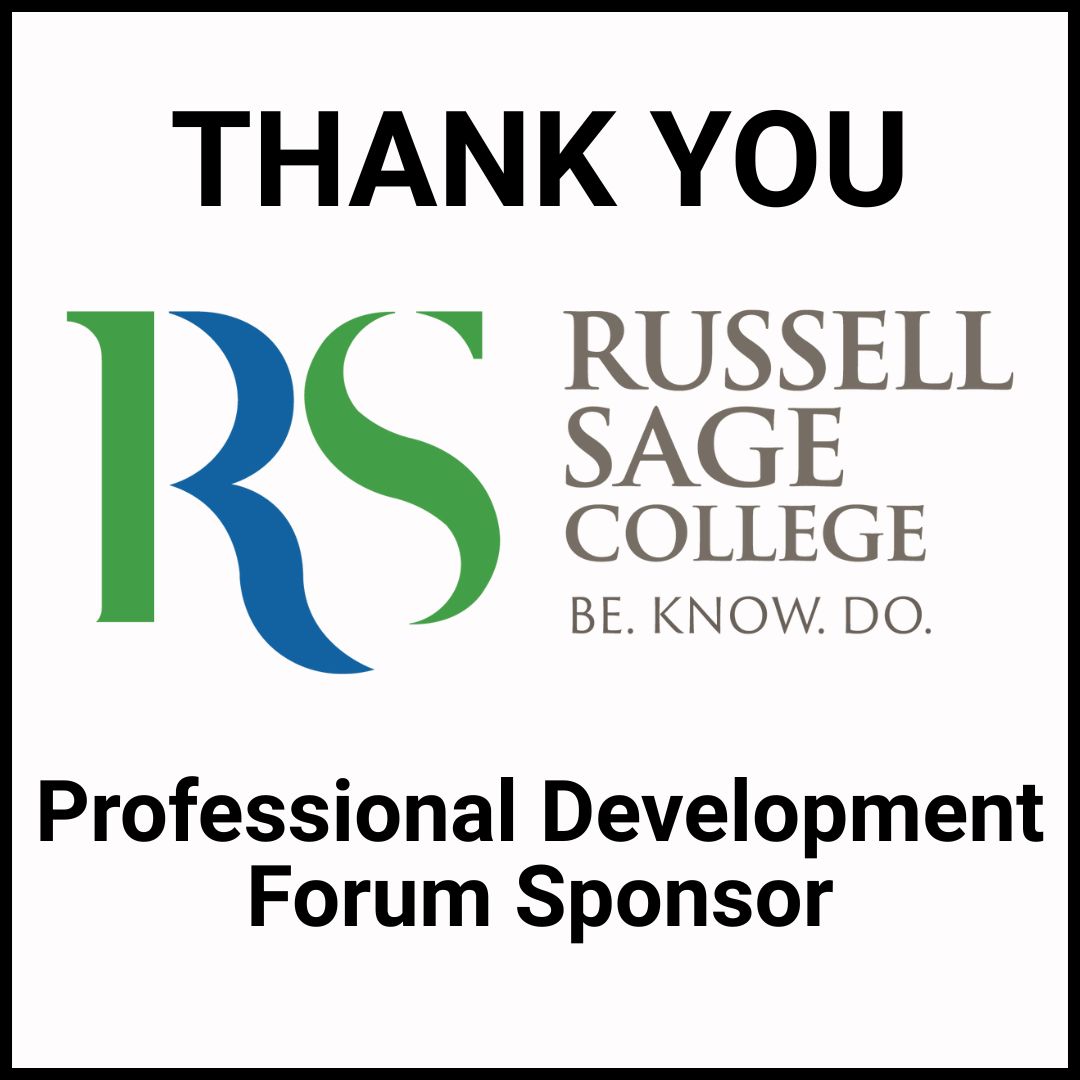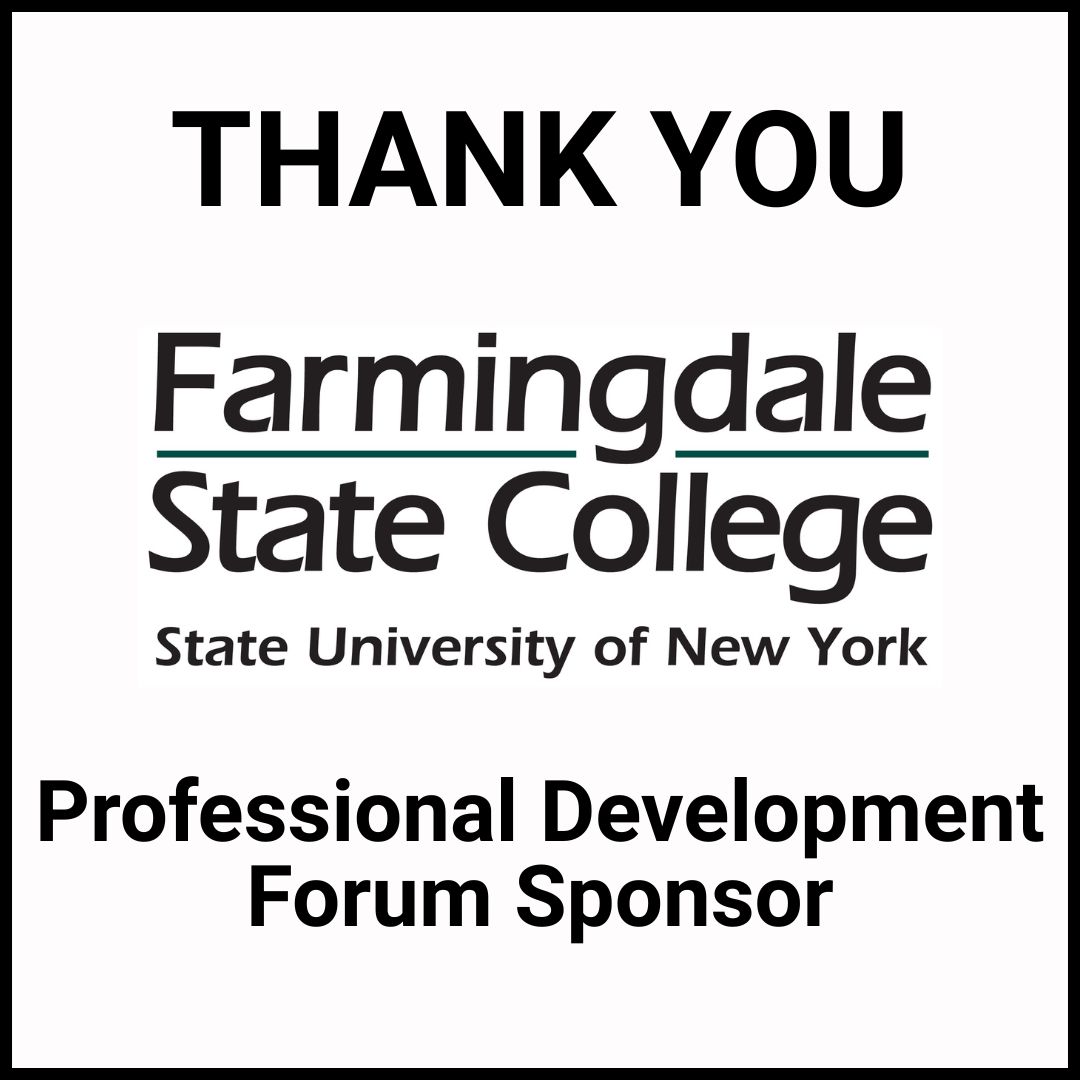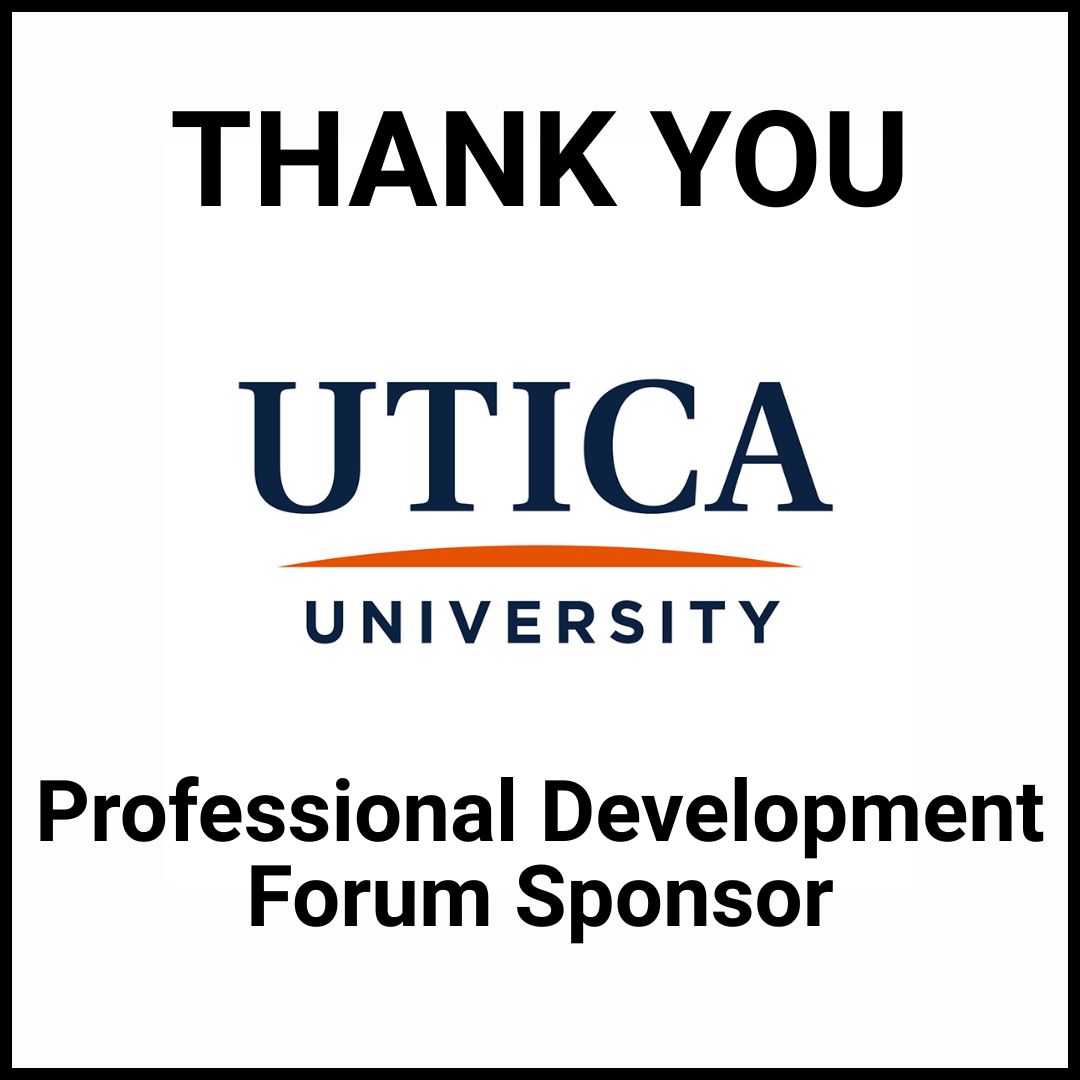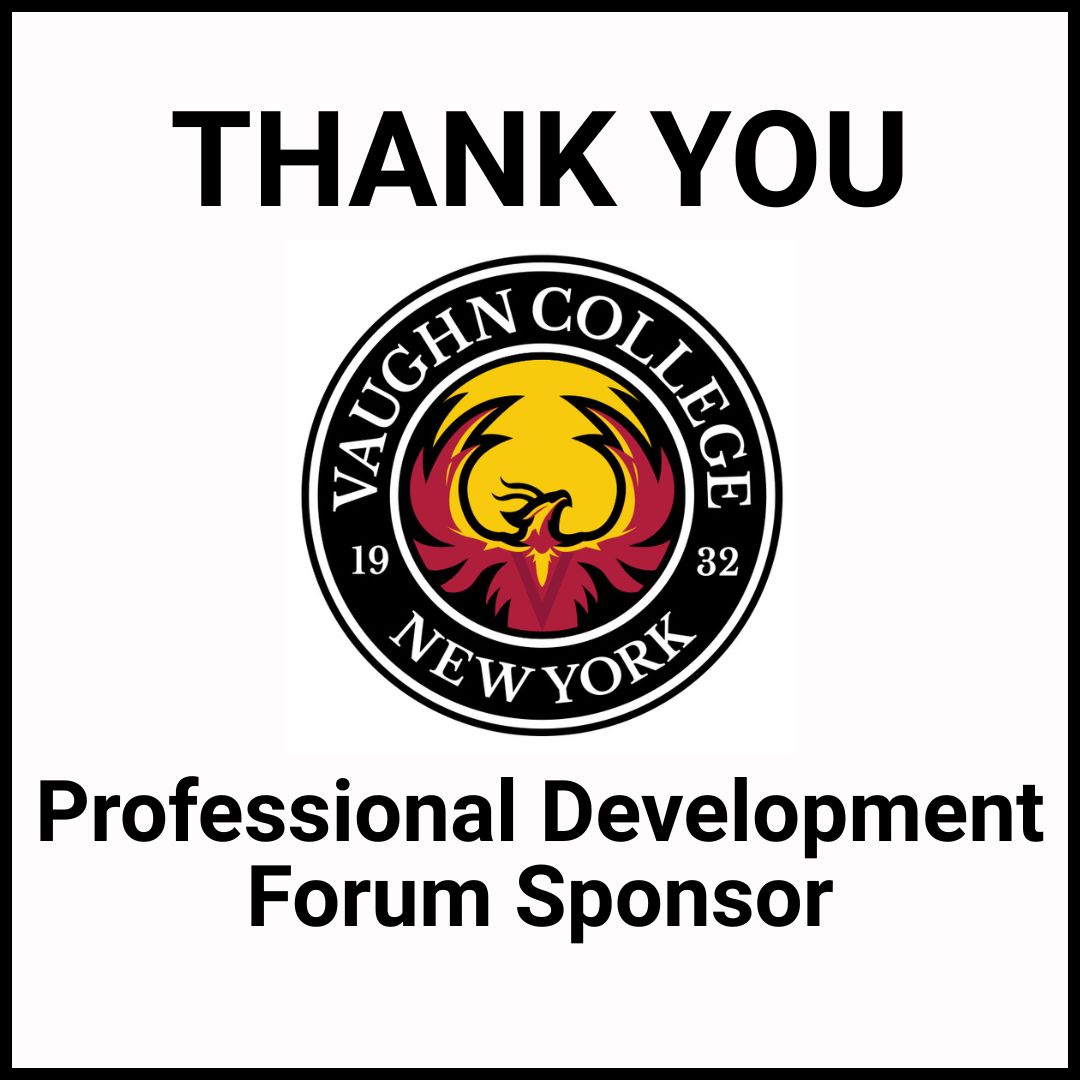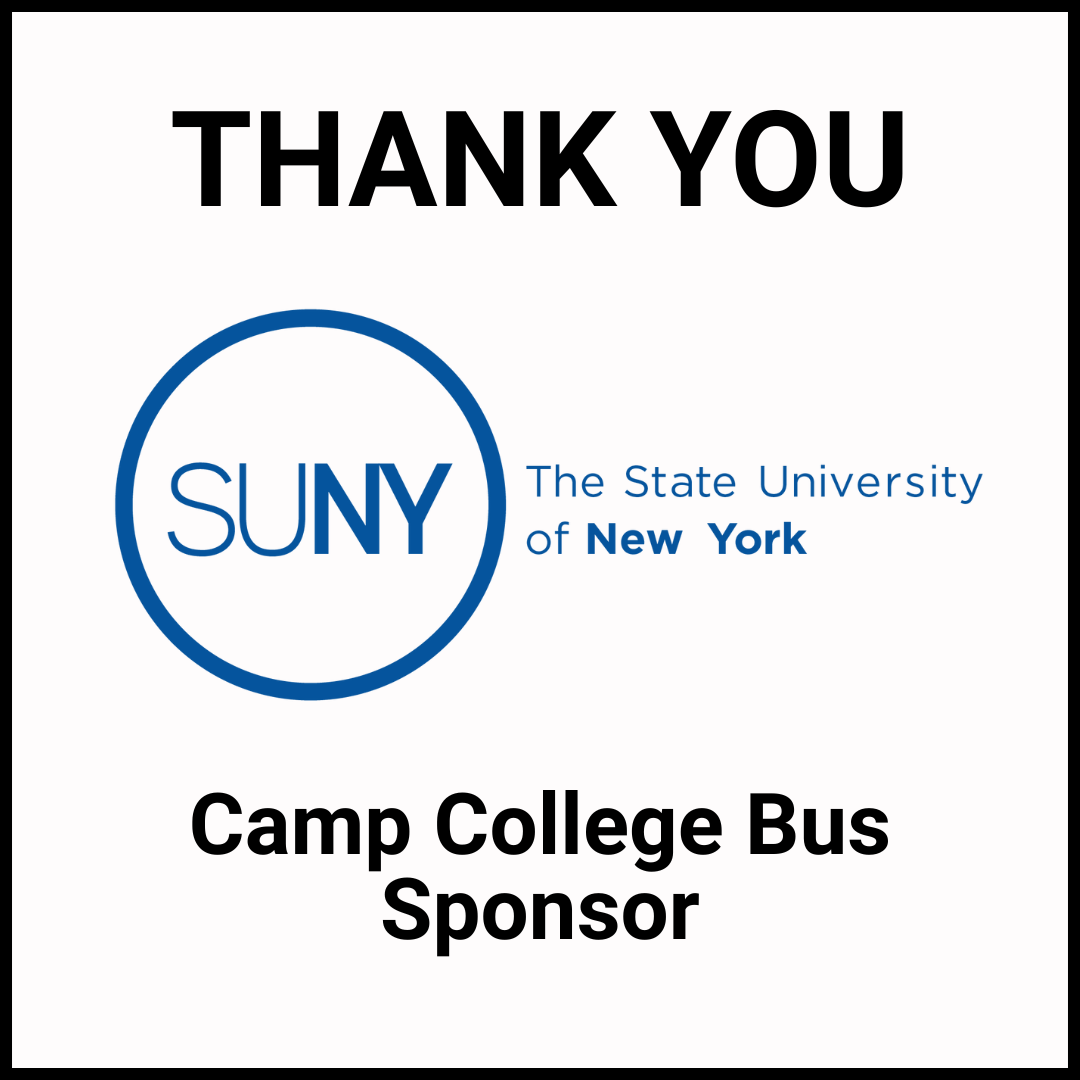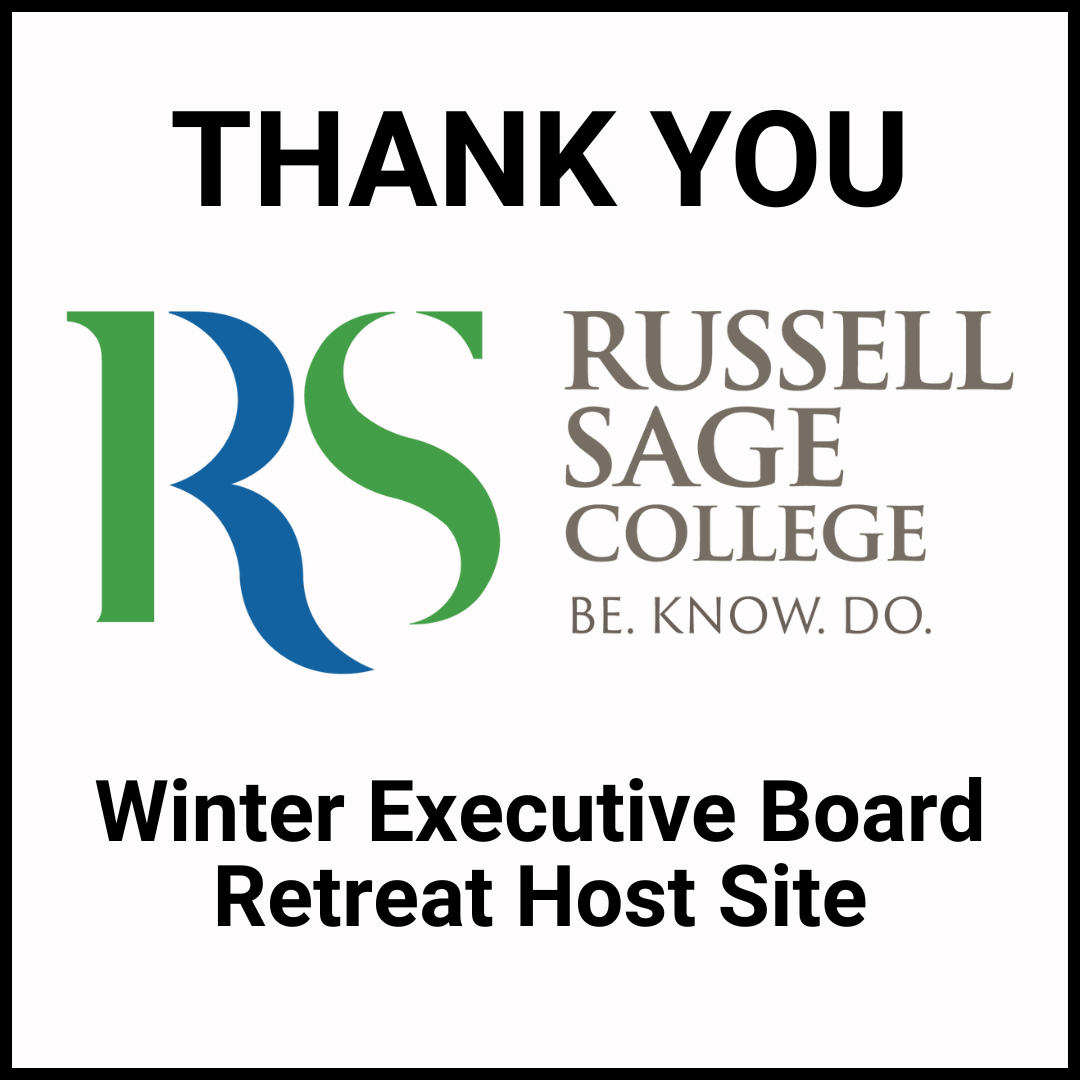- Home
- About
- News
- Government Relations
- Professional Development
- Community Outreach
- Donate
- Membership
|
Stephanie Espina, NYSACAC President I hope you all had a memorable holiday season with your loved ones and entered the new year feeling rested and refreshed. It’s hard to believe that January has gone by so quickly! Our Executive Board and committee members have been hard at work, wrapping up signature events like our annual Winter Institute and planning for events to come including Legislative Advocacy Day, upcoming regional college fairs, webinars, and professional development forums across New York State. Annual conference planning is also well under way led by our President-Elect, Marissa Guijarro. The countdown begins for our 42nd Annual Conference and 23rd Annual Coming Together Conference this June! I hope you’ll engage with us at any or all of these spring events. There is much knowledge to be exchanged and it is so important, more than ever, to support each other in our work and service to students. Over the last few weeks, we have progressed in our grant work, funded by the Bill & Melinda Gates Foundation. NYSACAC is the first national affiliate to have been awarded a grant of this kind. Earlier this month, we welcomed Kurt Thiede to serve as our project consultant to coordinate this work and manage our progress. We look forward to forming a state-wide committee of volunteers to join us in our efforts. A website with project updates is in production and will be shared with membership in the near future. The NYSACAC presidential team will continue to provide you with the most up to date information as we receive it from NACAC during this time of uncertainty and change. If you haven’t already, I encourage you to read NACAC CEO Joyce E. Smith’s message to NACAC members that was emailed to NYSACAC members on January 22. Lastly, it is not too late to renew or join NYSACAC and take advantage of special membership advantages and pricing for our organization events, including reduced rates for the upcoming conference at Manhattanville College. Consider renewing or joining today and help us elevate NYSACAC’s voice and impact! I encourage you to stay connected with us throughout the year. Please feel free to reach me with your thoughts, ideas, and updates at [email protected]. All the best,
Stephanie Espina President, NYSACAC
Toolkit for Undocumented Students Rebecca Kruge, CARA College Action: Research and Action (CARA), whose mission is to ensure that first-generation college students, low-income students, and students of color have the knowledge and support necessary to enroll in and persist through college, is excited to share its guide for undocumented students going through the college application process. A group of experienced College Bridge coaches created it because of their shared commitment to helping this population, as well as their shared recognition of the lack of relevant and useful resources. The student-friendly guide aims to help undocumented young people navigate the college process, and also to provide their supporters with important information and resources. Please feel free to share with anyone who may find the guide useful. If you have any questions or would like to learn more about the project or CARA, please contact Paula Kashtan at [email protected].
New Developments in the Gap Year World Kristin White, Darien Academic Advisors The gap year market has grown by leaps and bounds in the last ten years. Once a unique and adventurous journey undertaken by a small number of students, the gap year is now an accepted alternative path to college. I recently wrote the second edition to my book, The Complete Guide to the Gap Year: The Best Things to Do Between High School and College, and in the extensive research for this update, I found several new developments in the gap year world. 1. A focus on exploring career goals. Parents and students today are very much focused on preparation for careers, and many students spend all or part of their gap year in an internship or career-oriented program. Ethan Knight, director of the Gap Year Association, cited three reasons why students are taking a gap year: burnout from the competitive pressure of getting into college, a desire for students to learn more about themselves, and putting off the high cost of college until students have a clearer understanding of their academic and career goals. The third goal listed was not a factor in the past, but today it is very much driving the gap year plan. Students want to participate in internships during and before college. In response, more gap year companies offer internship opportunities around the world. 2. For some students, a “college transition” program is vital. A student may not have the maturity and independent living skills needed for college, but he may benefit from a chance to build these life skills in a residential setting. Students can attend college classes, intern, volunteer and participate in activities with their peers. Some programs are therapeutic in nature, and others focus on wellness, internships, or building academic skills. For many students, a college transition focused gap year can make all the difference for success in college. 3. For independent volunteers: There are some bold and adventurous gappers who are ready to go into the world without the benefit of a structured program. They will connect with a non-profit on their own, arrange a volunteer placement, and secure housing. This type of gap year experience is valued by students who are ready to get outside of their comfort zone. Popular planning tools for this cohort include Omprakash and Giving Way. 4. Gap semesters are popular. Colleges have embraced the idea of the gap year, and some have even found that offering a gap semester can help with their enrollment management. Many colleges offer students the option to start college in January. This leaves the fall open for a gap semester. For many students, this is just the right amount of time for their gap experience. 5. Scholarships are available: There are seven colleges which offer funding from the university for her gap year. There are also gap year scholarships that any student can apply for, sponsored by Travel Access Project, USA Gap Year Fairs, Hi USA, and several others. If you want to learn more about the gap year, there are several resources which will keep you up to speed in this dynamic educational space. My new book, The Complete Guide to the Gap Year which is available on Amazon, covers the ins-and-outs of the gap year including case studies and a directory of 192 programs. The Gap Year Association website, www.gapyearassociation.org, is a wealth of information that includes ratings and reviews of programs, plus information on college deferral policies and funding.
The Importance of Receiving a Conference Grant Carla Shere & Sheryl Kavanagh, Co-Chairs of Conference Grants Committee
Once again, the NYSACAC Conference Grants Committee is soliciting colleges to donate grants for both high school and CBO counselors to attend the annual conference at Manhattanville. If you are a representative from a college and would like to contribute to this effort, please contact Sheryl Kavanaugh at [email protected] to receive a link for easy completion.
In addition to the grants serving high school and CBO counselors, this year we are trying a pilot program offering three scholarships to community college counselors working with students planning to transfer to a four year institutions. After the conference, we will examine if this makes sense, and how to establish a permanent program. We look forward to meeting the grant recipients at this year's conference in Manhattanville!
With tighter budgets on the college side, we realize that conference grants may not always be seen as a priority, so we decided to profile three college counselors who benefited greatly by receiving a grant to attend the conference. We ask that you please read their shared stories about why attending the conference was so important to them, and to be on the lookout for this year's grant application!
Michele Harris, High School for American Studies at Lehman College Over the years I have funded myself (which can be expensive), or have been awarded a grant more than once to attend the annual NYSACAC conference. I attended in 2005 at Manhattan College, 2007 at Hobart and William Smith Colleges, 2008 at Manhattanville College, and 2015 at Utica College. It was at one of these conferences that I discovered Naviance when they were a very small startup company and had a dusty table in the corner of the exhibit area. Upon my return to school, at my insistence, we ordered Naviance. My school was the third high school in NYC to subscribe, and as most know, it is now the most widely used college planning program. This is just one example of the benefits that come from attending professional conferences along with amazing educational sessions and wonderful networking opportunities. Furthermore, my interactions with colleagues from the secondary and postsecondary institutions have led to great personal friendships. Now I feel if I don't attend a conference I'm really missing out.
Tunisia Riley, Urban Assembly School of Design and Construction I was not really familiar with NYSACAC before I attended a college event and Kristen Harris announced a grant which would send counselors to the conference at Marist College. Everyone was buzzing about this conference because the NYSACAC would be coming together with the NEACAC (New England -ACAC). I didn't think my principal would let me attend for a week, and to top it off I was injured. How would I even get there or get around? Kristen and Kimberly Hall legitimized the event and spoke to my principal about the importance of networking with peers and college representatives. Kristen discussed how the grant would cover the costs, provide transportation, and high schools would bare no financial burden. I received the grant and my principal gave me the green light to attend. The conference at Marist changed my professional life! It opened my eyes to advocacy work. I was able to create closer ties to many of my peers, and opened new professional channels with amazing colleges. I saw the direct effects the week had on my students' college acceptances. I cannot see myself not attending the NYSACAC conference again. It's essential to my professional growth, and eventually I would even like to present at a future conference. None of this would have been possible had I not received the grant. Thank you!
Ummi Modeste, City As School My first year in my role as a college advisor I didn't know what Coming Together was, and since I was paying out of pocket, I didn't register. My second year, I received a conference grant, which allowed me to attend the full conference, including Coming Together. It made a huge difference! I was able to connect with more colleagues who worked with populations similar to mine as well as those from very different settings. I made in-person connections with college representatives that put my school on their radar, and learned so much more about the association that the following year I ran for a position as a High School Delegate. Attending the conference changed the way I look at my profession.
Save-the-Date! NYSACAC Spring Professional Development Forums With spring just around the corner, it can only mean one thing: the NYSACAC Professional Development Forums are on their way! This year, we'll focus on a variety of high-interest topics and allow time to connect with colleagues. Our forums will vary slightly by location so look out for more details and registration information coming soon! This year’s locations and dates are as follows, we hope to see you there! Fordham University Thursday March 12th at 10:00 a.m.
In collaboration with CACNY’s Leadership Summit
***
Binghamton University Friday, March 13th at 8:30 a.m.
***
Siena College Tuesday, March 24th @ 8:30 a.m.
***
Monroe Community College Thursday, March 26th @ 8:30 a.m.
***
University at Buffalo Thursday, April 23rd @ 8:30 a.m.
____________________________________________________________________________
How New ACT Test Options Help with College Planning Greg Napierala, ACT Account Executive
Starting in September 2020, the ACT test will offer new options for students that are designed to save them valuable time set aside for college planning. Students might be wondering what these enhancements will look like, what to expect, and how these enhancements will affect first-time testing or retesting on the ACT.
ACT will be hosting free webinars for students, parents, and educators who help them prepare a path to college success. It is an opportunity to learn from the experts behind these enhancements as they explain why ACT is offering them and how they give students more choices, a better experience, and greater confidence that their scores will reflect their overall academic achievement and potential.
The new options will be covered at length:
Have questions? Visit an ACT September 2020 FAQ page or complete this contact form.
Event Calendar and Important Dates February February 10, 2020: NYSACAC Executive Board Meeting @ The College of Saint Rose February 11, 2020: Legislative Advocacy Day March March 15-16, 2020 :: Rochester National College Fair @ Rochester Riverside Convention Center March 16-17, 2020 :: Syracuse National College Fair @ SRC Arena Onondaga Community College March 18-19, 2020 :: Buffalo National College Fair @ Buffalo Niagara Convention Center April April 22, 2020: NYSACAC Executive Board Meeting @ Manhattanville College April 24, 2020: NYSACAC Regional College Fair @ St. Francis College April 26, 2020 :: New York National College Fair @ Jacob K. Javits Convention Center May May 14th, 2020: NYSACAC Regional College Fair @ Byron-Bergen Jr/Sr High School June June 2-5, 2020: 42nd Annual Conference & 23rd Annual Coming Together Conference @ Manhattanville College
The 34th Annual NYSACAC Summer Institute Skidmore College in Saratoga Springs, NY August 11-14, 2020 This four day intensive mentor-based institute brings new college admissions professionals, high school counselors, and CBO counselors together with energetic and seasoned mentors to grapple with a wide range of admission counseling issues. Learn through professional development, networking, case studies, and much more! Registration opens May 20, 2020
Membership Spotlight: Julio A. Torres, Jr.
“Julio is passionate about his work serving students in the admission process and beyond. I witnessed him mentor many students through their college careers. It brings him a real joy to see students he mentored reach their full potential while graduating from college. Julio is caring, loyal, and someone I am happy to say I’ve been friends with since our college days.” – Luis Santiago, Western Connecticut State University, Co-Chair of CBO and Opportunity Programs Committee “Julio cares deeply about the students he serves. His messaging is relevant and relatable, as well as fun. He takes the extra time to go the extra mile with families, counselors, and new staff members he meets on the road. Our profession is lucky to have someone so dedicated to our mission.” – Marie Nocella, Siena College, Vice President of Inclusion, Access and Success How did you begin working in college admissions? I began my career within the nonprofit world working in East Harlem, NY which then led me to become an Education Opportunity Program (EOP) Advisor. Having been a Higher Education Opportunity Program (HEOP) student I wanted to assist high school students and families further throughout the college admission process. My introduction to the admission field was as an alumni volunteer. An opportunity to join the staff arose, and I have been in the field ever since. What advice can you offer new professionals in the field? I advise new professionals to be inquisitive because you can learn a lot from others. Speak with colleagues both on your campus and out on the road. Feel free to ask a lot of questions to your colleagues, and the network you create. This was extremely valuable and helpful to me when I entered the field.
What is a common misconception about your role? I think people tend to believe admission professionals work a typical “9-5” job when in reality, there is no such thing as a typical day. Every day consists of new challenges and opportunities. It may be meeting with prospective students and families, driving or flying to a college fair, giving information sessions, reading applications, communicating with school counselors, working with faculty, working with other campus offices, working with current students and many other stakeholders or all of the above at the same time. Not having a typical day keeps the work interesting and challenging.
What is your favorite part of the college admissions process and why? My favorite part of the college admissions process is developing a personal relationship with students and families, and seeing their college journey come full circle. Being able to work with and speak with students and families is very rewarding. Assisting them through the process and witnessing them flourish at college, eventually graduate, and begin their post-graduate endeavors is really special and what I enjoy the most about the process.
What advice do you have for students applying to college? First off, enjoy the process and journey. Everyone takes a different path, and that is a good thing. Next, take small steps toward your overall goals; use your resources and ask for assistance as you strive to achieve them. Lastly, look for the right fit for you; ask questions and remember this is your process. What is your favorite quote? I have many favorite quotes. Among them are “Start where you are. Use what have. Do what you can.” by Arthur Ashe, and “Keep a good thought” by Bernard J. Keller, my Upward Bound Program mentor and basketball coach.
Describe your perfect Saturday. An ideal Saturday includes watching a great game, enjoying time and conversation with friends and family, and having great food throughout the day.
How has NYSACAC impacted your career? Being a part of NYSACAC has greatly impacted my career by creating a network of professionals and friends throughout the field. I have been able to form relationships and partnerships with a very diverse set of professionals and institutions. NYSACAC has assisted me with professional development through presentations I have conducted at conferences and regional forums, serving on various committees, mentoring at conferences, mentoring students through Camp College, and being able to share my voice and ideas with others in the field. The “Why Do You Want to Study Here?” Supplement Question and Why It Matters Sirui Tao and Erik Johnson
Erik: I want to introduce you to Sirui, a student I am working with at The Stony Brook School. Sirui is from Beijing, a boarder at our school since 9th grade. In many ways, Sirui has been an ideal student. She is curious, inventive, and persistent. She is a keen reader and a budding author. She loves languages, literature, music, and theater. Outside of class, you can find Sirui honing her serve on the tennis court, practicing acapella songs with our chamber singers, editing writing for submission for publication, advising and leading her fellow dorm-mates as their “dorm prefect,” or polishing a scene in the play. And up until recently, you could also find Sirui working furiously on college applications. Being a high capacity student from China, Sirui has had a long journey until this point. Sirui:Hearing horror stories about grueling college applications since I entered high school, I was extremely proud of myself when I easily conjured up a presentable, polished personal statement even before my senior year started. Every phrase depicted a frame of the life of my roommate and I, and the essay encapsulated all the struggles and laughter in our relationship. Although I’ve always seen myself as a fiction writer, I must admit that this nonfiction piece, an autobiographical essay, was easy and enjoyable to write. I was on “Cloud Nine,” but “Cloud Nine” is made of vapor after all. The cold gale that dispersed my pride was the “why school” essay. I would find myself sitting at my desk for hours, struggling to go beyond the twenty-words of praise I had paraphrased from Niche. Every sentence I produced could be a textbook example of vague, generic writing, where I couldn’t even convince myself after reading that I sound excited about those schools. When I wasn’t typing, I would find my index finger hovering over the “delete” key. Erik: Working with students like Sirui has helped me understand both the importance of fit, and also how some students bring with them baggage and expectations that make fit hard to think about. She had assumed that hard work, an excellent resume, and high SAT scores would open doors, and that knocking on those doors was also just a matter of hard work. In a sense this is true, but the “why us” supplement, if taken seriously, provokes students to a much deeper process of investigation--both a process of investigation about a given school, and perhaps more daunting, a process of self-investigation. Although I have always found Sirui a very thoughtful and self-aware student, even students like Sirui can have a hard time looking past the blinding light of prestige to see how a school may or may not really be the best fit. In Sirui’s case, hard work on supplements have at points confirmed and deepened her interest in a school, and in other cases, it has helped Sirui see that some schools, though excellent, aren’t really what she is looking for. Sirui: A bookworm and polyglot, I knew I wanted English and language learning to be major parts of my college experience. During my preparations for the “why” essay, I noticed that I was interested in something much more specific: the building of cross-cultural understanding through comparative literature. Immersed in two disparate cultures, I’m familiar with the misconceptions the two societies hold about each other. Reading the course descriptions and the mission statement of the Comp-Lit programs, I saw how this major equips students to try to diminish the prejudices and misunderstandings that thrive in our pluralist world. Not only did the “why” essay help me see my own interests more clearly, I also started seeing schools more clearly. As I did more research, I started discovering things that shook up my list of schools. I realized that some of the very impressive schools I had been dreaming about did not offer as much as I had hoped, and for many that did, their course catalog didn’t make my heart skip a beat or my eyes grow wide with excitement. On the other hand, I had also discovered some programs and concentrations that were a revelation--feeding and connecting my academic interests in excitingly unanticipated ways. It felt great to narrow down my list of colleges: no longer blindly influenced by the U.S. News ranking, I knew that I was getting closer to the place where I really belonged. I also realized that the schools aren’t simply curious about my reasons for applying, but are essentially prompting a self-reflection: what do I want more, the name or the experience? Erik: Sirui has helped me see that I need to be patient and understanding. Many students from places like Beijing live with cultural pressures and expectations that they cannot control, even if their own parents are willing to support more counter-cultural choices. These students often feel pressured to apply to as many top ranked schools as possible, regardless of questions of fit. Perhaps this strategy works for some, but too often students simply cannot generate convincing supplements for all these schools. In part this is because really getting to know a school well is time-consuming, but it is also because no student is a good match for all 20 schools at the top of any particular ranking. I am grateful for the “why this school?” supplement question, because of the kind of reflective thinking it provokes in students like Sirui. It helped Sirui see why some of the schools on her original list were indeed a good fit, but it also gave Sirui the courage to take some schools off her list--despite their name recognition in China. Further, it gave Sirui the courage to add some schools to her list that as a junior she had not even considered. For many such students, they often hear from home that the best school is the highest ranked school, regardless of any other factor. While this may be a reality, students still need to find an authentic fit if they are to have a maximal chance at an excellent, worthwhile college experience. Proposals are Scary; NYSACAC Shouldn’t Be Risa Dubow and Zee Santiago, Coming Together Conference Co-Chairs
As you may already know, the request for proposals is live for both the Coming Together Conference and the Annual NYSACAC Conference in June. If not, let us be the first to tell you...it’s LIVE! And the deadline is February 15!
We are lucky to receive great proposals each year to further the conversation around equity and access in higher education. Last year, we had to reject nearly as many proposals as we accepted. AND, standing in front of a room and sharing on a topic you are passionate about at a state-wide conference, especially as a first-timer, can be scary. We get that. But it doesn’t have to be. So, we want to share some hot tips to help you consider what kind of session to submit, including the criteria we use to determine our selections.
Remember, you don’t have to plan a 60-minute lecture about a specific topic. In fact, many of the most well-attended and well-reviewed sessions are facilitated conversations about a particular area or an interactive workshop where participants can participate actively in their own learning. As Cassie Magesis, NYSACAC Immediate Past President and Director of Postsecondary Access at The Urban Assembly says, “learning during sessions so often happens from other attendees, and not just presenters,” so we recommend tapping into the collective experience of your peers when designing your session.
What do we look for in a proposal for the Coming Together Conference?
Intrigued? We are accepting proposals here until February 15. You will know by the end of March if your submission was accepted. Additionally, we will have resources for accepted presenters on effective facilitation strategies, so stay tuned for updates from the NYSACAC Professional Development Committee. We can’t wait to see you in June at Manhattanville!
NYSACAC Scholarship Spotlight: Opeyemi Lekan Meylin Andares & Lorrie Director, NYSACAC Scholarship Committee Co-Chairpersons Happy New Year NYSACAC members! We are very excited as we prepare to release the 2020 NYSACAC Scholarship application. Stay tuned for more information.
An inquisitive and intellectual young man from The Bronx, Opeyemi Lekan is our Scholarship Spotlight this month:
Name: Opeyemi Lekan College attended: Columbia University Major: Biochemistry Nominated by: Andrea Joubert, Harry S. Truman High School How will the NYSACAC scholarship help you to achieve your goals? “The NYSACAC scholarship would help me achieve my goals by providing me with needed funds to aid me in getting a good education.” Please tell us more about you - your interests, passions, volunteerism, how you like to spend your free time, etc. Anything you would like the members of NYSACAC to know about you! “My interests include STEM related fields, neuroscience, and evolution theory. My passions include reading and analyzing works of ancient Greece. During my free time, I like to play chess (and other board games), read a book, or relax.” Membership Spotlight: Cheryl Goldstone 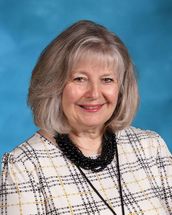
“Cheryl Goldstone is well known and very active in the Western New York school counseling community. She is an advocate for her students and for the School Counseling profession. She is generous with her time whether it be volunteering for the Buffalo National College Fair Local Arrangements Committee, coordinating regional scholarship committees, or advising activities at Williamsville South High School.” ––Annemarie Cervoni, School Counselor
How and when did you become passionate in your field? From the moment I decided to make a career change to become a school counselor, I was passionate about becoming involved and making a difference not only in the lives of students, but also in the profession. What advice do you offer your students in the college application process? I always tell students to apply where their heart lies, but to make sure that their list of college choices includes a reach school, mid-range school(s) and safety school(s). Additionally, I strongly suggest to students if there is any way possible, that they visit the campuses before making their final choice, including in the visit staying overnight in the dorms; sitting in a class in the area they hope to major in; eating on campus; meeting with the admissions and financial aid office; and touring the campus and surrounding town before you make your final decision on where to attend. I also share with students to read the flyers that hang in the hallways and on bulletin boards to see what type of events are going on in the community and on campus. I also share with students that it is important to show “demonstrated interest” in the colleges they are interested in. What is your favorite quote? “I can’t promise to fix all your problems, but I can promise you won’t have to face them alone.” What can someone find you doing on a Saturday? In my “former career,” you would have found me expressing my artistic qualities as a cosmetologist. After selling my business to one of my employees, I still go in on Saturdays and work part of the day. What is your favorite part about your job? The role of a school counselor is very diverse. It is a job that has several moving parts––mental health counseling (social-emotional/crisis), college & career counseling; academic counseling (course selection/graduation requirements); advising clubs; and running a food pantry for our district. Each day brings its own set of challenges and triumphs. What is something you wish more people understood about your profession? We are no longer “guidance counselors” only focused on graduation and course selection for students, but rather “school counselors” who handle a myriad of activities. What’s a piece of advice you received that has stuck with you? My first principal encouraged me to network and gave me the time to do so. I met so many wonderful counselors and learned so much from all of them. I am so grateful for his advice to network. Also, when I came to Williamsville South, my mentor, Kathie Homer, encouraged me to get involved. I became involved in both the local and state counseling organizations and never looked back! What is one challenge you and your students regularly have to overcome? Many individuals believe because I work in a school system that is ranked high in the number of students we send on to colleges/universities and has a population of parents who themselves are successful in many fields, that we do not have some of the issues faced by inner city/urban districts. As school counselors and students in a suburban school district, we still face many of the same issues. I also find that some of our teachers occasionally forget that not all of our families have the financial resources to own a computer or put food on the table. The public often believes that the families/students in Williamsville have everything.
Thank You from NYSACAC’s Winter Institute! On January 10th and January 17th new professionals from around the state gathered with seasoned mentors to engage in meaningful conversations focused on topics relevant to the early years in the field of college admissions counseling. Participants discussed new trends in the changing admission landscape, ethics in college admission counseling, advocacy and access, balancing institutional goals, developing professionally, and effective communication. The Winter Institute committee extends its deepest thanks to the hosts for the program. With the support of Syracuse University’s Lubin House and Utica College, we were able to have a productive and energizing day. A special thanks to the presenters and mentors who shared their industry insight, expertise, and perspective with program participants. All who participated made the day a success! 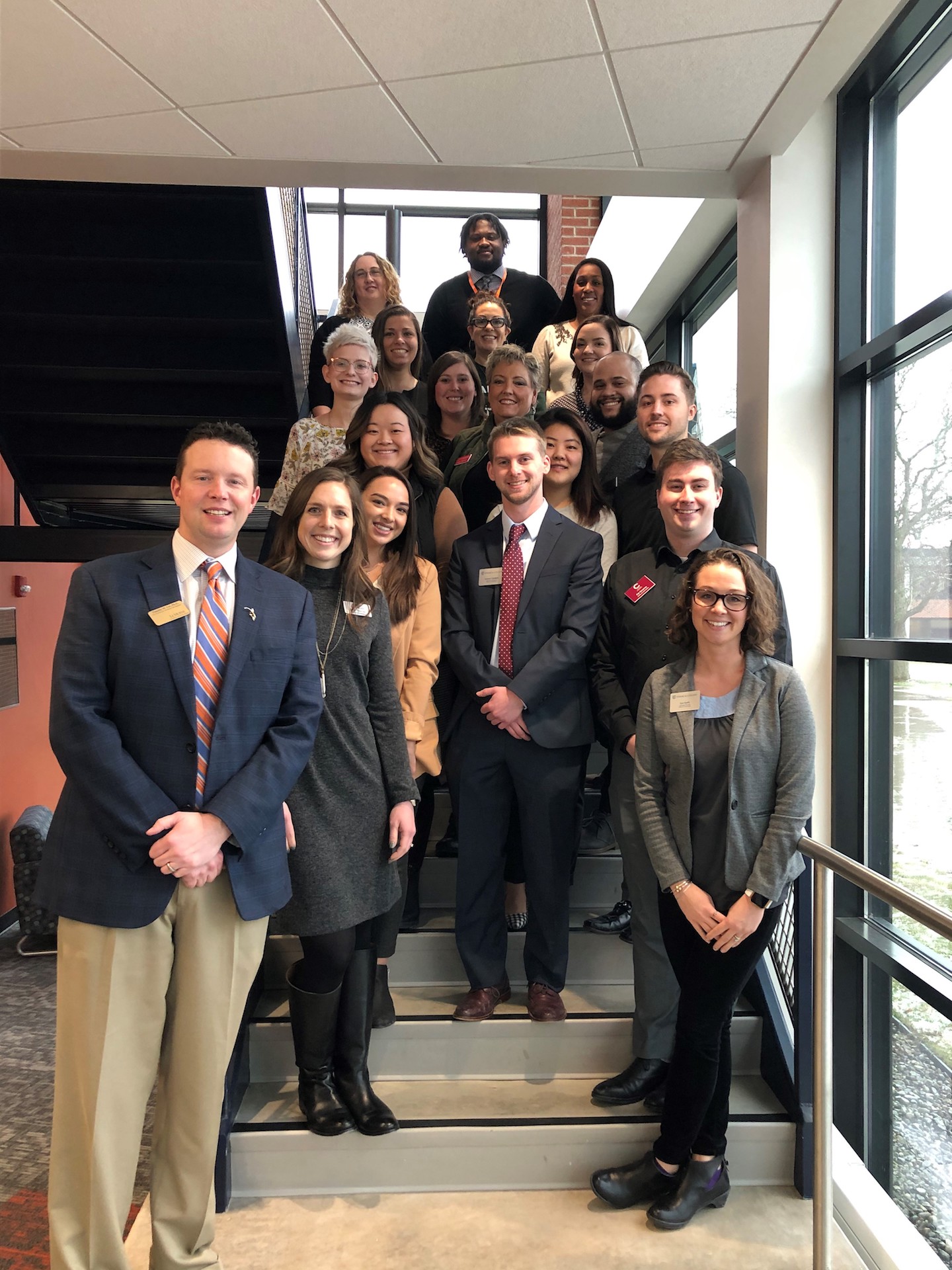 |
